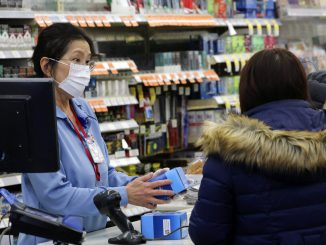A drug company says it has asked the U.S. government to allow emergency use of an experimental antibody therapy based on early results from a study that suggested the drug reduced symptoms, the amount of virus, hospitalizations and ER visits for patients with mild or moderate COVID-19.
Eli Lilly and Company announced the partial results Wednesday in a news release; they have not yet been published or reviewed by independent scientists.
Its drug is similar to one that President Donald Trump received on Friday from Regeneron Pharmaceuticals Inc. These medicines supply concentrated versions of specific antibodies to help the immune system clear the coronavirus that causes COVID-19. They’re given as a one-time treatment through an IV.
Lilly has already started making one of the two antibodies in its drug, betting that ongoing studies would prove it worthwhile.
It’s not clear if the evidence will be viewed as strong enough for the Food and Drug Administration to grant emergency use authorization, as it has done for the antiviral drug remdesivir.
The results are an interim look at a mid-stage study in which 112 people received the antibodies and 156 got a placebo.
The amount of virus was significantly lower 11 days later in those given the drug — the main goal of the study. Virus also was lower at earlier time points as well. Symptom scores were better at three days.
About 5.8% of patients given placebo required hospitalization or an emergency room visit versus 0.9% of those given the antibodies.
The company said there were no serious drug-related side effects.



